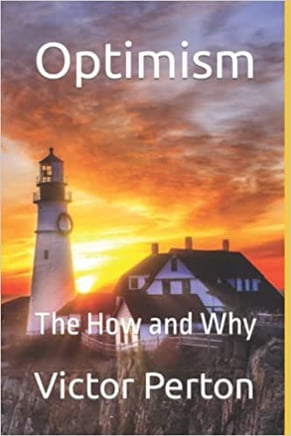Quotes from The Tough-Minded Optimist by Dr Norman Vincent Peale
"When you have what it takes to deal creatively with the harsh facts of human existence and still keep on believing in good outcomes, you are a tough-minded optimist."
"If you want to live in this tough world and still have some real faith and optimism this book is for you.
"Strike the T off your CAN’T, and you will develop what it takes to take it. This is the way tough-minded optimists are made."
"A thoughtful physician once told me, “If you want to contribute to the public health, I suggest you speak and write often on the necessity for hopefulness, optimism and expectancy. Put some real up-beat into people’s minds.” He explained how important is a happy and optimistic spirit in healing, and went so far as to say that pessimism in a patient reduces the natural healing processes by ten per cent. I asked how he could pinpoint a particular percentage figure and found him vague on this; but the idea is that when your mind is filled with optimism your natural re-creative forces are stimulated. Another physician, in reviewing his practice of some forty years, said that many patients would not have been ill and forced to consult him if they had simply practiced optimism, faith and joy. He said, “Quite apart from medication, if I can get them to lift themselves mentally for ten minutes every day into an area of pure joy—meaning undiluted optimism, I can get them well and keep them well.” So it seems that medically, also, optimism is important."
"Again and again in the Bible references are made to joy, faith, optimism. “These things,” Jesus said, “have I spoken unto you, that my joy might remain in you, and that your joy might be full.” (John 15: 11) Take optimism, therefore, as medicine for the body, mind and soul. Optimism is based on faith, hope and expectation; and there is therapeutic value in the mere act of hoping. The Bible recognizes this also in a moving passage: “Why art thou cast down, O my soul? and why art thou disquieted within me? hope thou in God; for I shall yet praise Him who is the health of my countenance, and my God.” (Ps. 42: 11 ) It is to say that if you have hope in God and expectation, it will show on your face as health and vitality."
"And so to the formula “tough-minded” we add the upbeat word optimist. Here again is a word that has taken on an inadequate connotation, for it is not a description of the super-cheery, the ultra-bright or the fortuitous. It is rather to see the worst in complete realism, but still to believe in the best. Again, Webster: Optimism: The doctrine that the goods of life overbalance the pain and evil of it, that life is preponderantly good. The inclination to put the most favorable construction upon actions and happenings, minimize adverse aspects, conditions and possibilities, or anticipate the best possible outcome; a cheerful and hopeful temperament."
"A “Tough-Minded Optimist” then is one who doesn’t break apart in his thoughts whatever the stress and who continues hopefully and cheerfully to expect the good no matter what the apparent situation."
"You can hardly help liking a man who slugs his way through, no matter what, regardless of what anybody says, or does, or doesn’t do, so long as he knows that what he is doing is right, conscience clear, objectives worthy. This is tough-minded optimism in action."
"He emanated vitality, life, optimism. I decided to see what made him tick, as they say, and went in search of him, I found him regaling several people with stories that had them all laughing. This one man was refurbishing the atmosphere for everyone."
"In the days following I found myself thinking more and more of the powerful effect of optimism upon human beings. In fact, I made an intensive study of it to determine what it contributes and the methods by which it may be cultivated. Moreover, I deliberately practiced it myself and discovered anew that a regular systematic practice of optimism is important in fixing it firmly in the consciousness. My friend on the train derived his optimistic attitude toward problems from a dramatic change in his thinking but even so a daily practice of his new attitude had contributed to his expertness in this vitalized way of thinking and acting. Optimism is positive thinking lighted up. Some chronic objectors to anything that smacks of hopefulness have decried positive thinking as an overly bright view of life and a kind of jaunty disregard of pain and trouble in this world. Some people have distorted my emphasis, often deliberately, I have felt. Others simply have misunderstood. The positive thinker is a hard-headed, tough-minded and factual realist. He sees all the difficulties, and I mean all, and what’s more he sees them clearly … which is more than can be said for the average negative thinker. The latter invariably sees everything in shadowy discoloration. But the positive thinker, unlike the negativist, does not allow difficulties and problems to depress him, and certainly not to defeat him. He looks expectantly beyond all acknowledged difficulties for creative solutions. In other words, he sees more than difficulties—he tries to see the solutions of those difficulties. The positive thinker has a longer and more penetrative insight. He is completely objective. He has definitive goals. He never takes no for an answer. He is, in short, indomitable; not the kind that will take a licking. He just keeps on fighting and thinking and praying and working and believing and you’d be surprised how many times the positive thinker comes out of the toughest and seemingly most hopeless situations with positive results. And, even if he doesn’t, he has the satisfaction of knowing he gave it a good try, which is something, a mighty satisfying something. And maybe, just maybe, the positive thinker who didn’t win his objective won something even more precious: his own manhood—his own soul."
"There is nothing in this life quite so satisfying as to surmount trouble, and nothing so exciting as to take apart a hard tough problem and put it together rightly. And this can be done, even pleasurably done, when your mind is conditioned by a working optimism and faith and to that add expectancy....
"In making optimism effective an important element is to achieve a state of harmony. The individual who is in harmony within himself and with others is to that degree effective. When you are not in such harmony you are to that degree ineffective. As stresses are reduced or better still eliminated harmonious efficiency will begin to show in your thinking and performance...
"When you fight the game, or fight the job, or fight life you are under stress and therefore you build up resistance simply because you are out of harmony. So naturally optimism declines. But when your mind is full of joy, when you love whatever you are doing—whether selling groceries, writing books, raising children, practicing law or medicine, or going to school—when you love it and are full of happiness about it, then you step up your harmony and there is a flow to your thinking, to your living and working which makes it truly enjoyable. Result? You become much more effective. So start developing both inner and outer harmony for if you are on the outs either with yourself or others then actually you are as they say “out of it.”
"I am aware that my emphasis on optimism no matter how tough-minded is hard for some people to take. As a matter of fact it even seems to irk some of the more critical because basically they hate to see anything go well; it actually bothers them. You would think they would be happy about it. But no, instead they seem to resent any and all hopeful signs. If things weren’t bad they would have nothing to be sad and gripey about."
"Of course not all of the doubters about optimism are of the beatnik variety. There are not a few normal everyday hardworking, hard-thinking people and scholars who are seriously concerned about many issues and to them hopefulness seems unrealistic, even superficial. And for them and their concern I have respect. But the tough-minded optimist has the soundest attitude; he sees all the evils and sees them straight but he still believes in better outcomes than appear likely at the moment. Only recently on a plane I encountered a man who in current jargon expressed what might be construed as a dim view of life. In fact, as he regaled me with his ideas I found myself recalling Schopenhauer’s: “Optimism cuts a sorry figure in this theatre of sin, suffering and death.”
"Menninger says, “Attitudes are more important than facts.” Sure a fact is a fact. Some people say that as something final; there’s that great big hard fact. So what can you do about it? So they give up. But the tough-minded optimist takes a positive attitude toward the fact. He sees it realistically, just as it is, but he sees something more. He views it as a challenge to his intelligence, to his ingenuity and faith. He prays and asks for insight and guidance in dealing with the hard fact. He keeps on thinking; he keeps on praying and believing. He knows there is an answer and so finally he finds it. Perhaps he changes the fact or maybe he just by-passes it or perhaps he learns to live with it. But in any case his attitude toward the fact has proved more important than the fact itself. Practice hopefulness until you master it. Then keep on practicing it, so that you keep it always working. You don’t need to take a final licking at any time, ever. With God’s help you can handle any problem."
HOW TO BE SUCCESSFUL AND HAPPY AND WHAT’S WRONG WITH THAT?
Every morning as you start the day say those powerful words: The Kingdom of God is in me—with God’s help I can handle whatever comes. And when you know for a fact that you can do just that, and if you always keep humble, and work and pray—and are always a tough-minded optimist—you will live a happy and successful life and what’s wrong with that? Sum-up of How To Be Successful and Happy
1. Have absolutely no sense of guilt about being happy and successful if you operate honestly and with a sense of social responsibility.
2. Get the modern idea of success which is to be successful as a person.
3. Read and study the Bible as a practical guide to successful living.
4. Don’t write off the importance of hard work, the guts to keep at it, a definite goal and the ability to have fun in the process. If there’s no fun in it, something’s wrong with all you’re doing.
5. Use your head. Without that you’ll never get ahead.
6. Keep enthusiastic and love what you’re doing.
7. Keep relaxed. Don’t tense up no matter what, for you only close off creative power when you do. The relaxed man is the powerful man.
8. Have quiet times regularly and practice the “feel” of God, your Creator, re-creating you.
9. Visualize the Kingdom of God as in you. See yourself as the potential possessor of God’s bounty.
10. Eliminate—and this is very important—eliminate your capacity for self-destructiveness.
Read more of these inspiring quotable quotes in "Optimism: The How and Why" by Victor Perton, CEO of The Centre for Optimism.
 Project Optimism has produced "The Optimist's Gratitude Journal: 100 days to share and develop your gratitude" which is very helpful.
Project Optimism has produced "The Optimist's Gratitude Journal: 100 days to share and develop your gratitude" which is very helpful.
See https://www.amazon.com/Optimists-Gratitude-Journal-develop-gratitude/dp/B09MC5ZNPX

.svg)